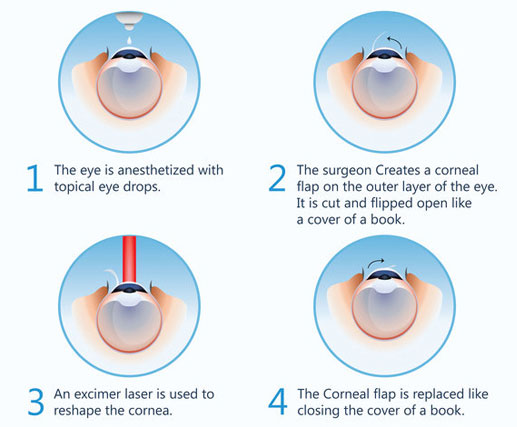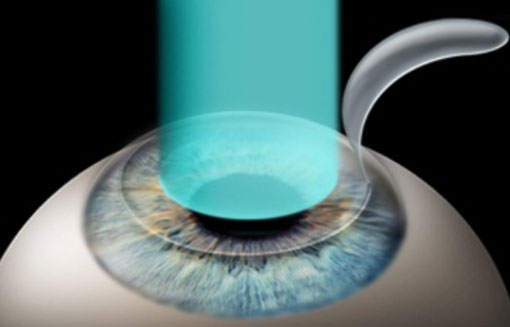Call us: 811-438-8593 |
Email us: kvehbbsr@gmail.com |
Opening Hours: MON-SAT: 9 AM - 8 PM and SUN: 9 AM - 1 PM |


If you have a refractive error, such as nearsightedness (myopia), farsightedness (hyperopia), astigmatism or presbyopia, refractive surgery is a method for correcting or improving your vision. There are various surgical procedures for correcting or adjusting your eye's focusing ability by reshaping the cornea, or clear, round dome at the front of your eye. Other procedures involve implanting a lens inside your eye. The most widely performed type of refractive surgery is LASIK (laser-assisted in situ keratomileusis), where a laser is used to reshape the cornea.
Farsighted people will have refractive surgery procedures that achieve a steeper cornea to increase the eye's focusing power. Images that are focused beyond the retina, due to a short eye or flat cornea, will be pulled closer to or directly onto the retina after surgery.


There is no universally-accepted, best method for correcting refractive errors. The best option for you should be decided after a thorough examination and discussion with your ophthalmologist. If you are considering refractive surgery, you and your ophthalmologist can discuss your lifestyle and vision needs to determine the most appropriate procedure for you.
Over the years, much have been invested into developing treatments and techniques to ensure the well-being of the eyes and maintain our sense of sight. Among the most recent of these, and one of those that have gained immense popularity in the last couple of years, is refractive eye surgery. While the term may often be associated with laser-assisted in situ keratomileusis (LASIK), it can refer to a variety of procedures of which LASIK is only one. The other treatments belonging to this broad term have their own advantages and answer the needs of different kinds of patient.
With the many advanced and painless procedures available today, you may not have to depend on your glasses or contact lenses to improve your vision after all. It worth noting though, that to ensure that these treatments work for you, it’s best to pay your doctor a visit and inquire about the feasibility of refractive surgery. This way, you’d know which one is best for your condition and your specific needs.